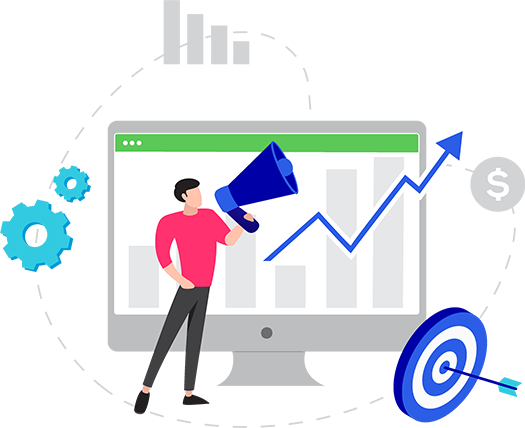Helpful Insights Into Lead Generation
In today’s highly-charged climate of lead generation, sales teams need technology that can thrive in a highly-competitive online environment.

In today’s highly-charged climate of lead generation, sales teams need technology that can thrive in a highly-competitive online environment. So let’s look at some of the ways the latest tech can maximize your ability to generate leads.
The art of lead generation is becoming more and more dependent on automation. As social media defines how people forge connections with each other, it will increasingly determine how they connect with brands, products, and services. Keeping track of activity on social media platforms is necessary; and being able to deploy hyper-targeted campaigns in a timely manner is a must. Content experience software can help companies personalize digital content, providing a value-add of sharable content they can take with them. Hence the most effective lead gen strategy is to leverage the data culled from social media channels—that is: from networking platforms like Facebook, Twitter, Instagram, and LinkedIn.
To begin with, an enhanced UX translates to higher conversion rates. This has implications for the automation of solicitations and for micro-targeting. Information may then be presented to prospects in a way that’s both timely and suited to their particular needs. This even requires modes of articulation–that is: mirroring habits expression so as to better resonate with them. The idea is to provide personalized experiences to possible leads has become imperative. Most users in today’s online world are accustomed to custom-tailored content; so generic campaigns now seem tired and impersonal; which means they are ineffective. Rather than a campaign targeted to just anyone, users crave personalized experiences.
While harvesting key information from online activity is integral to any lead gen strategy, it alone does not suffice in today’s ultra-competitive marketplace. Most users of social media are most apt to pay attention to brands that they follow or engage with. It is therefore imperative that businesses target specific personality profiles. With LeadMachine.AI, this can be done automatically and at scale. Such tech is indispensable for qualifying, generating, and engaging leads.
If you personalize your campaigns and message your users (following up with email, texts, and even live chat), they will more likely turn into customers. By making use of
ML (machine learning), a system can learn to create speech in the language (phrasing, lingo, buzz-terms, catch-phrases, idiomatic expressions, trendy locutions) that the target audience tends to use. This makes the phrasing far more relatable. It is important to stay updated on the tools that help brands connect with target audiences. The more natural the conversation, the more likely potential customers will be open to reengaging; as they’ll feel more comfortable communicating.
NLP (natural language processing) enables a system to learn how to best communicate with specific leads, down to matching/reflecting the tone and type of messaging most comfortable per person. When it comes to this new tech, the idea is to detect the specific language that any given person uses across social platforms, pinpointing dialogue trends and common keywords. There’s power in talking to a customer like they’re the only one in the room. This is crucial for effective lead generation.
This kind of automation is only possible with cutting-edge tech. In order to reach targeted audiences with a campaign, one cannot be limited exclusively to specific keywords matches. For example, with its “Broad Match Keyword Targeting”, Twitter has made use of AI technology to make it much easier for digital marketers to reach out to targeted audiences. With these augmented capabilities, marketers can make use of not only keyword matches, but also on broad matches that include related terms. Even better, buzz-terms and catch-phrases used in online activity can be used to home in on more qualified prospects. Predictive analytics can make a big difference as well; as it will indicate which strategies will tend to work best for the designated target audience.
When it comes to setting up targeted lead procurement, a system must be able to collate the vast amounts of necessary data, profiling every lead on a case-by-case basis, and doing so in short enough periods of time. This entails sifting through massive data-sets and discern patterns, culling relevant information to better target solicitations. It is capable of staying abreast of fluctuating market conditions. This includes the use of conversational chatbots, which are effective due to their NLP capabilities (natural language processing). Intelligent chatbots can lure—then nurture— qualified leads to the degree necessary to convert them to sales. When it comes to vetting leads, most marketers agree that deploying campaigns via social media is the most fruitful; as one can go off of interests, online activity, shopping history, etc. So a system must be able to deploy lead gen campaigns across all social media channels, online businesses can establish a strong digital presence and supercharge their lead generation process. Engagement is key. A significant portion of Facebook users un-like a brand because of uninteresting posts; and many un-like because of too many posts. It has become imperative that a business keep the mechanics of its outreach as concise and targeted as possible. The trick is to use technology that will allow you to extract lead information from prospects without putting them off.
Subscribe to our newsletter to learn more about LeadMachine.
$49.95/per month
(pay nothing for 14days)